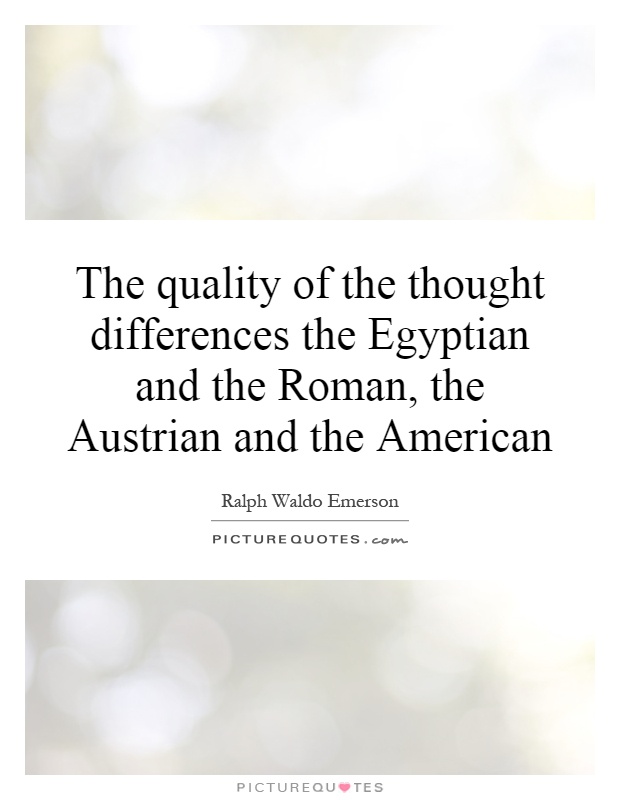The quality of the thought differences the Egyptian and the Roman, the Austrian and the American

The quality of the thought differences the Egyptian and the Roman, the Austrian and the American
Ralph Waldo Emerson, a prominent American essayist, lecturer, and poet, was known for his transcendentalist philosophy that emphasized the importance of individualism, self-reliance, and the power of nature. In his essay "Self-Reliance," Emerson explores the idea that the quality of thought differs among different cultures and societies, specifically comparing the Egyptian and Roman, Austrian and American ways of thinking.Emerson believed that the quality of thought was influenced by a variety of factors, including cultural traditions, historical context, and societal norms. He argued that the Egyptians and Romans, with their ancient civilizations and rich histories, had a different quality of thought compared to the Austrians and Americans. The Egyptians, known for their advanced knowledge of mathematics, architecture, and religion, were deeply rooted in tradition and hierarchy. Their thought processes were shaped by a reverence for the past and a belief in the divine order of the universe.
On the other hand, the Romans were known for their pragmatic and practical approach to governance and warfare. Their thought processes were influenced by a desire for power, conquest, and expansion. Emerson believed that the Roman quality of thought was characterized by a focus on material success and external achievements, rather than inner reflection and self-awareness.












 Friendship Quotes
Friendship Quotes Love Quotes
Love Quotes Life Quotes
Life Quotes Funny Quotes
Funny Quotes Motivational Quotes
Motivational Quotes Inspirational Quotes
Inspirational Quotes